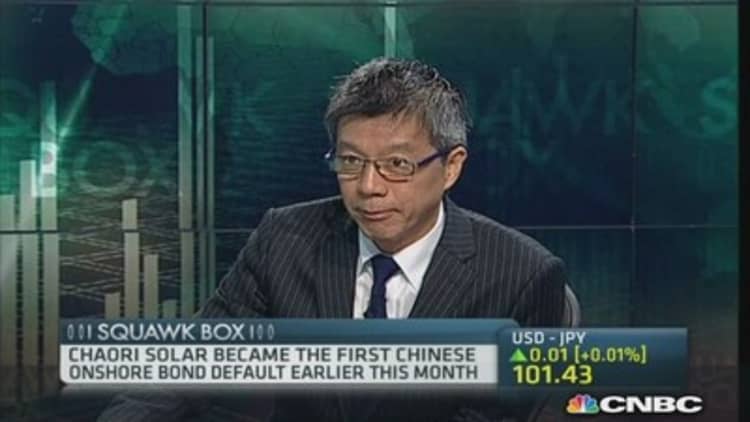A bitter turf war between China's two most important financial regulators is hampering policy co-ordination just as the country's debt-laden financial system is starting to show signs of real strain.
The China Banking Regulatory Commission and the People's Bank of China, the central bank, have always been rivals, but now rising tensions are obstructing reforms and efforts to tackle risks in the financial sector, according to officials from both agencies.
From the outside, the Chinese system can often look like a monolithic structure but the various arms of the bureaucracy are often engaged in vicious institutional battles that can delay or even hamstring policy.
More from the Financial Times:
Big data: are we making a big mistake?
Greece launches sale of five-year bond
'Heartbleed bug' threatens web traffic
In just one example of how rancorous the split has become, several people familiar with the matter say a Financial Stability Council chaired by the PBoC and including the heads of the main financial regulatory bodies has met just once since it was established last August.
The row comes after several high-profile defaults in recent weeks including the first ever public domestic bond default in modern history and a small bank run in eastern China.
Read More China regulator warns of risks in insurance asset management products
The council has not been able to meet because of opposition from the CBRC, which has vehemently objected to what it sees as a power grab by the PBoC.

In recent weeks the central bank, which has responsibility for overall financial stability in China, has expressed frustration at the CBRC's unwillingness or inability to rein in the off-balance sheet activity of the state-controlled banking system, which has ballooned in recent years.
The PBoC also feels the CBRC is too close to the state banks and has failed to get a handle on the scale of problem loans at many of the country's smaller lenders.
"One of the biggest roadblocks to financial reforms in China now is the fact the PBoC doesn't think the banking regulator is capable of handling the risks associated with that reform," said one person familiar with the matter.
Read More Bad loan writedowns soar at China banks
The most pressing of those reforms include a long-delayed plan to introduce deposit insurance and the liberalisation of interest rates, which is already under way in the so-called "shadow banking" sector.
Both of these initiatives are opposed by state banks which have enjoyed a near-monopoly in the financial sector for decades.
Meanwhile, CBRC officials feel they are being unfairly blamed for not managing risks that were created by the PBoC and which they have warned about for years.
In the wake of the 2008 global financial crisis, Beijing launched a credit-fuelled stimulus that has seen assets in the formal and shadow banking sectors balloon from around $10tn to nearly $25tn today, according to estimates from Fitch Ratings.
Read More How a rumor sparked a bank run in China
In other words, in just five years China has added new assets equivalent to those held by the entire US banking system.
As a result, the country's ratio of total debt to GDP has jumped from 130 per cent in 2008 to 220 per cent now.
Such a rapid build-up of credit has almost always been a precursor to a financial crisis in other economies and the CBRC has been warning of the risks since the stimulus was launched in 2008.
Another CBRC complaint has been the PBoC's aggressive promotion of "financial innovation", which some officials at the banking regulator say is more accurately described as "interest rate arbitrage" or "regulatory arbitrage".
They argue that having forced the banks to carry the burden of the stimulus the PBoC then encouraged the creation of the vast shadow banking sector that it now blames the CBRC for not regulating properly.
A spokesperson for the PBoC declined to comment while a spokesperson for the CBRC said the two institutions have a co-operative relationship.


